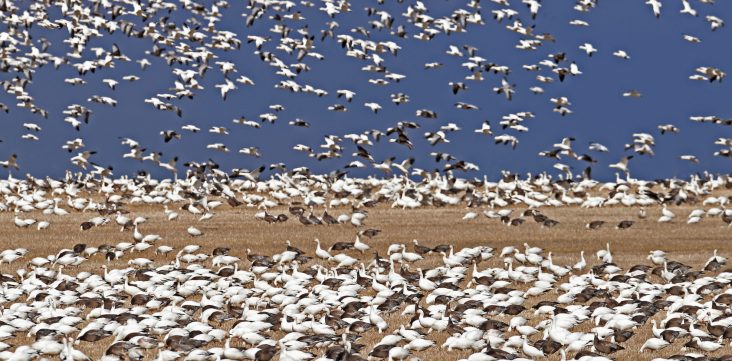Highly Pathogenic Avian Influenza detected in wild geese populations in Craighead County
by December 14, 2023 10:22 am 772 views

Poultry producers and hunters in Northeast Arkansas are being warned that the Highly Pathogenic Avian Influenza (HPIA) bird flu has now been detected in wild geese populations, according to the Arkansas Game and Fish Commission.
Biologists conducting aerial surveys to generate waterfowl population estimates last week located a few small groups of dead snow geese and Ross’s geese across the state. In Craighead and Lonoke counties several were collected and tested positive for influenza. Additional suspected cases have been found in Prairie, Pulaski, Faulkner, Clay and Poinsett counties.
“While sightings are not as prevalent as last year’s outbreak, the continued presence of the disease on the landscape does create a need to update hunters and anyone who has domestic birds or poultry livestock,” the agency reported.
The risk of humans contracting the disease remains low, but hunters can help further minimize that risk by following a few simple precautions. As a general precaution, hunters should use good hygiene practices when handling, cleaning and preparing harvested waterfowl.
The more concerning risk associated with HPAI is its potential for spillover to domestic poultry. Commercial poultry producers may want to implement biosecurity measures as advised by the Arkansas Agriculture Department.
Many Arkansans in rural areas have small flocks of domestic ducks and chickens as pets and a source for fresh free-range eggs may want to take extra precautions as well.
Domestic birds should be completely isolated from wild birds or their parts. After handling waterfowl, hunters should change or clean clothing, shoes and other equipment before coming into contact with poultry, including commercial production facilities and backyard flocks.
